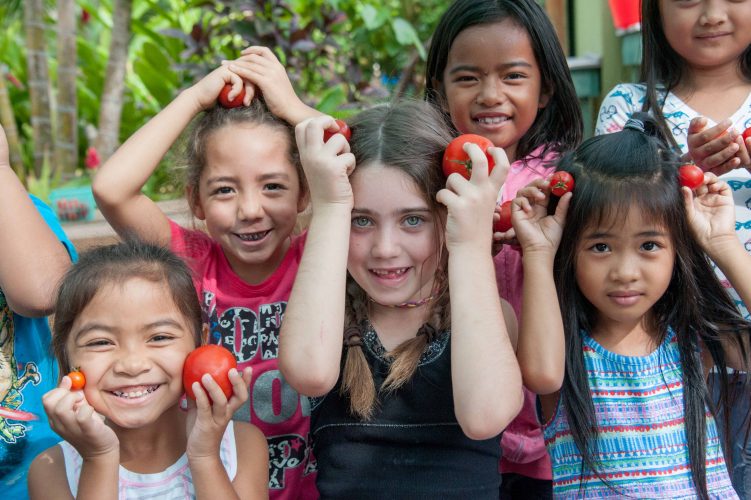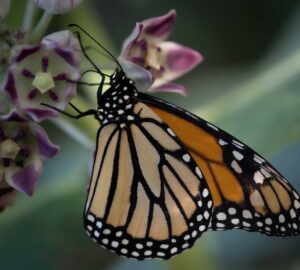
For many Maui students, back to school also means back to the garden. School gardens have become an intrinsic part of learning and have sprung up from teacher and student requests. Grow Some Good (GSG), a key provider of school gardens on Maui, got its start in 2008 when a 2nd grade science teacher requested volunteer assistance to start a garden. She wanted to teach her students the science behind growing plants. Other teachers saw the educational value of these gardens and requested more space and garden instructors. Today, GSG serves approximately 4,500 students each year at 11 Maui schools.
School gardens are outdoor living laboratories that provide education in science, math, art, culture, and environmentalism. When lessons in the garden are aligned with school curricula, they provide an important educational resource that reinforces classroom learning and is particularly beneficial for tactile learners and special needs students. Students get hands-on experience in ecology, including lessons on composting, identifying beneficial bugs and pests, photosynthesis, and pollination. Students enjoy garden time as an exciting break from sitting in the classroom, and as a time to explore the wonders of the outdoor world.
According to the State of Obesity report, in 2016, 26 percent of youth ages 10-17 in Hawaii were considered overweight or obese, a condition that has lasting implications for health. Helping students acquire a taste for healthy foods can have life-long benefits. GSG programs teach the nutritional content of food, and inspire students to make healthy food choices. In the gardens, students are often introduced to fruits, vegetables or herbs they have never tried before.
“If they grow it, they’ll taste it,” says Kathy Becklin, Executive Director for GSG. “If they prepare a dish with it, they’ll eat more,” she added. GSG works closely with the statewide Farm to School Hui, which endeavors to expand the number of local foods offered in school cafeterias, including school garden-grown produce. “Students are always excited to eat the food they’ve grown when it is used in their schools’ cafeterias, and we want to see more of that,” said Becklin.
To volunteer or donate, visit growsomegood.org.



